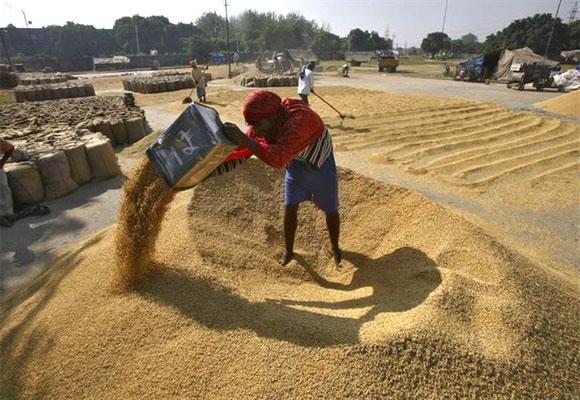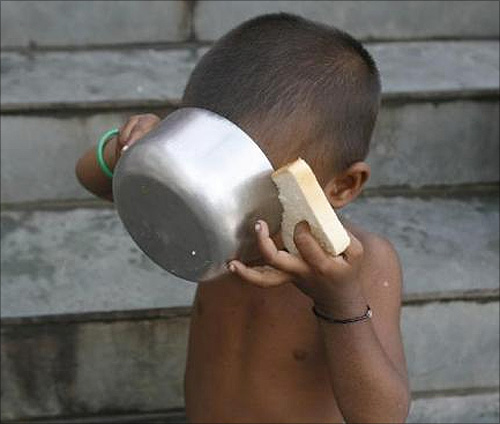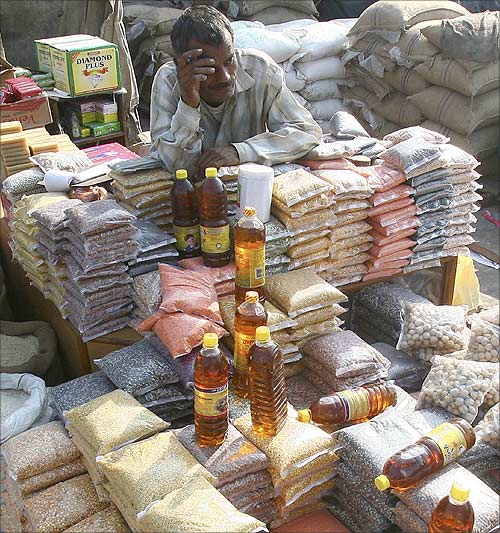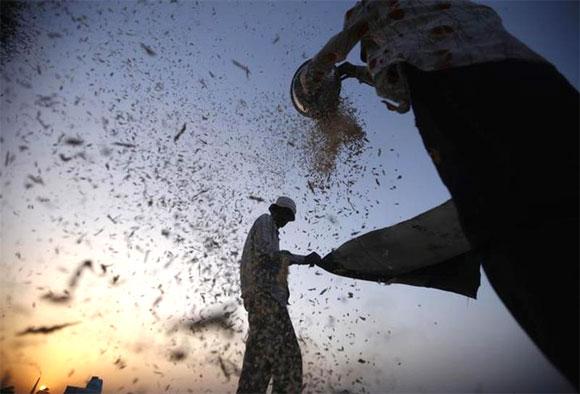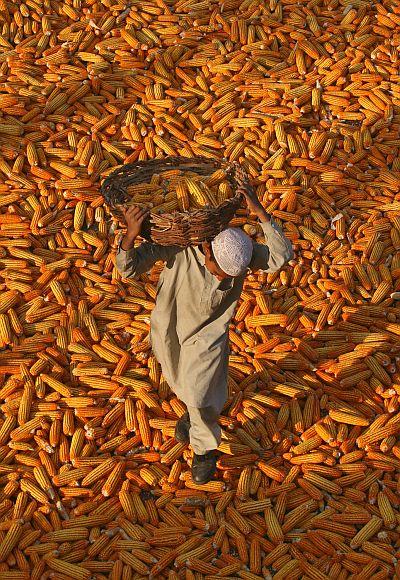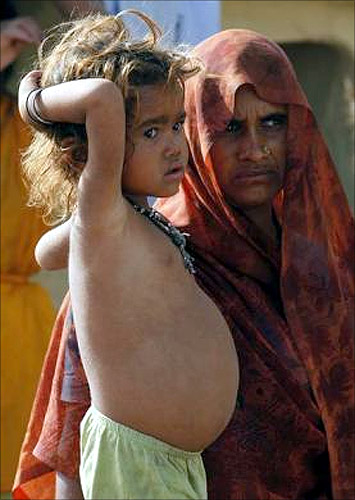 | « Back to article | Print this article |
Food security law's WTO complication
The recently promulgated National Food Security Ordinance might breach the global trading rules on agriculture under the World Trade Organization if there is diversion of the subsidised foodgrain for export.
The NFSO aims to provide five kg of foodgrain a month for each person covered, at a highly subsidised price.
About two-third of the country’s population would be eligible for the benefit.
Trade economists and experts say even if the ordinance is aimed at giving subsidies to this many for consumption, it is a subsidy.
And, these are prohibited if the product in question is traded, under the WTO norm as trade distorting or Amber Box subsidies in the parlance.
Click NEXT to read further. . .
Food security law's WTO complication
The subsidy in question is being given to consumers, not farmers.
However, there is no mechanism to monitor a leakage between the two categories.
It is also a reason why India is among the main countries in the so-called Group of 33 (G-33), spearheading a proposal on food security at the WTO which seeks to legalise these Amber Box subsidies.
Consensus on the G-33 proposal, it is argued, would remove the asymmetry in the Agreement on Agriculture in respect of food security and domestic food aid at the WTO. And, a positive stroke for removing hunger.
“WTO rules have to respond to the emerging reality that developing countries require flexibility and policy space for addressing the food security needs of their population, in a manner consistent with their development priorities,” said Abhijit Das, head of the Centre for WTO Studies, Insian Institute of Foreign Trade.
India has never exported rice from its public stockholding. However, in certain exceptional circumstances, it has exported wheat.
Click NEXT to read further. . .
Food security law's WTO complication
Why
WTO’s Agreement on Agriculture allows countries to provide an unlimited amount of direct food aid to sections in need.
Developed countries have done so.
The US, for example, has subsidised to the extent of $94 billion during 2011.
On the other hand, developing countries, being short on cash, are unable to use the provision on direct food aid.
Instead, they acquire and hold stocks of food products and subsequently release it at administered prices to the target population in need.
“Smooth implementation of the food security law might require tweaking of the WTO agricultural subsidy regime.
India and several other developing countries have proposed amendments to the regime to ensure we are above board.
Click NEXT to read further. . .
Food security law's WTO complication
Considerable efforts would have to be put to ensure the forthcoming WTO ministerial meeting in Bali is able to seal a deal on this issue,” said Biswajit Dhar of the Delhi-based think tank RIS.
In the aftermath of the global food crisis, developing countries have become more vulnerable than developed countries because of differences in productivity, scale and financial means to cope with problems besetting agriculture.
Agricultural sectors in developed countries are equipped with advanced technologies, large financial resources and support systems to provide secure incomes to their farmers, and to manage quick shifts in the market and in environmental conditions.
In contrast, many developing countries are not able to provide services, infrastructure and support to small farmers or to deal effectively with volatility in agricultural markets, due to a lack of institutional and financial means.
Click NEXT to read further. . .
Food security law's WTO complication
Way out
The issue of agricultural subsidies has been one of the most contentious issues in the Doha Round of the global trade talks which began in 2001.
After protracted negotiations, a draft text of outcomes was released in December 2008.
While this has not been finally approved because the Doha Round itself has been in limbo since then, there is a broad measure of consensus around the proposed outcomes.
“The problem is because the Doha Round has not been finalised, this remains a draft proposal.
“Meantime, our subsidies have been rising and could cross the permissible De minimis levels.
“If that happens, it would amount to a violation of our WTO commitments and some country could possibly bring a WTO dispute against us," said a Geneva-based trade economist, who refused to be identified.
De minimis is the level beyond which subsidies cannot be given under global trading rules.
The G33 proposal at the WTO seeks a decision on this issue in the Bali Ministerial.
The December 2008 text on agriculture states: “Acquisition of stocks of foodstuffs by developing country members with the objective of supporting low-income or resource-poor producers shall not be required to be accounted for in the AMS (Aggregate Measurement of Support).”
Click NEXT to read further. . .
Food security law's WTO complication
Issues
While the US is against such a proposal, European countries are ready to discuss the issue and find a solution.
The US feels any agreement on this issue will give unprecedented flexibility to China, which gives much more of subsidies as compared; their procurement levels are also much higher.
An agreement on this proposal is crucial for India, as almost all its farmers fall under the ‘low-income or resource-poor’ category.
More, the government is concerned that public procurement would soon overshoot the De minimis level.
The current threshold is 10 per cent of the total value of output in agriculture that can be given as subsidy.
The agriculture ministry has already said this could be breached the in near future.
